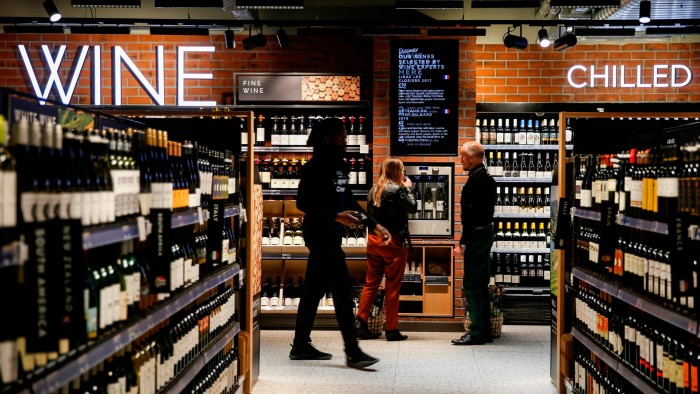Unlock the Editor’s Digest for free
Roula Khalaf, Editor of the FT, selects her favourite stories in this weekly newsletter.
Call it the Case of the Missing Malbec. Some heavier wines are disappearing from UK stores, sellers say, because a new system of duties makes them unprofitable. The aim of the tax change is partially to nudge drinkers towards healthier habits but it is creating problems for retailers and producers.
With “low and no” alcohol markets expanding rapidly and health a key political topic, there is growing discussion in policy circles about reforming alcohol duties, which are typically among the oldest, most complex and most contentious taxes in any country.
Since February, wine sold in the UK joined a system introduced in 2023 that taxed all drink by strength, rather than by category. As well as rewarding less boozy tipples, the overhaul was designed to close well-established loopholes. Hideously strong cider was cheap for example because, like wine and unlike beer, it was taxed by volume, not alcohol level.
This week retailer Majestic warned the tax changes had led it to drop several higher-alcohol wines from smaller producers. From a flat rate between 11.5 and 14.5 per cent of alcohol volume, the tax bands now rise for each extra tenth of a per cent. Beyond higher per-bottle prices, the cost to sellers comes in calculating new prices on thousands of products, including existing stock, under a metric that was not previously recorded and which also varies each year depending on the weather and the winemaker.
The UK has some sway in the wine world, being the world’s second-largest importer by volume and value. Some producers have responded by lowering alcohol levels in a handful of big selling wines. Australia’s Hardys and Concha y Toro, owner of Isla Negra, are among them.
Shoppers however have reacted poorly to the changed taste, judging by supermarket website reviews. The weaker offerings are also cheaper mass market products. For fans of higher-end wines, it is even harder to change the composition. There is not much a producer in Australia’s Barossa Valley or Argentina’s Mendoza region can do about their sunny climates, which naturally produce higher alcohol levels.
Westminster’s 2023 tax changes were roughly revenue neutral, putting the emphasis on the sin tax element of the new regime — although it is notable that health guidance on drinking does not make much of the difference between a glass of a light Muscadet and a punchy Shiraz, even if the taxman now does. That leaves retailers nursing a hangover — along with drinkers able to track down those missing Malbecs.




